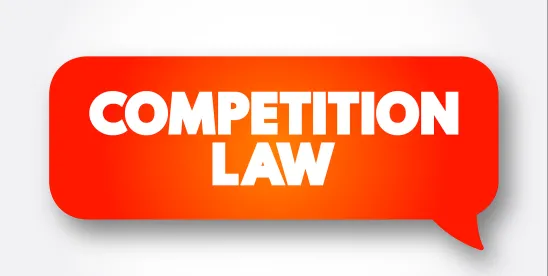On May 13, a federal judge granted private equity firm Welsh Carson’s motion to dismiss in an FTC action alleging the firm’s initial involvement in planning a “roll up” of anesthesiology practices in local markets in Texas subjected it to ongoing liability, on the basis that it continues to hold a minority interest in, and profit from, the post-roll up activities of the practices.
| Go-To Guide: |
|
On May 13, a federal judge in the Southern District of Texas dismissed private equity firm Welsh Carson from an injunction action brought by the Federal Trade Commission (FTC) seeking, among other things, a declaration that Welsh Carson’s conduct in devising a plan to utilize a large anesthesiology practice – U.S. Anesthesia Partners (USAP)1 – as a platform to expand, through serial acquisitions, its market share in various local markets in Texas, violated various federal antitrust statutes; and that it be permanently enjoined from engaging in similar alleged anticompetitive serial acquisitions.
On Sept. 21, 2023, the FTC filed a 106-page complaint against private equity fund Welsh Carson, its affiliates,2 and USAP in the Southern District of Texas. The FTC alleged that Welsh Carson and USAP engaged in anticompetitive conduct through (a) a series of “roll up” acquisitions that USAP made over several years, (b) price-setting arrangements between USAP and at least three of its competitors, and (c) an agreement between USAP and one of its competitors to allocate markets.3
This lawsuit, for the first time, focused enforcement action on the so-called “roll up” strategy often employed by private equity firms investing in the space as a potentially anticompetitive scheme. The FTC alleged that Welsh Carson’s continued equity interest in USAP subjected it to liability for ongoing violation of the antitrust laws, which the requested injunction sought to halt pending a full administrative proceeding on the merits.
Including Welsh Carson in the suit, the FTC claimed that even after Welsh Carson’s ownership stake dropped below 50%, the private equity firm maintained control over USAP through its two board seats, its holding of voting rights in some of USAP’s other shareholders, and because it “regularly provided USAP with strategic, operational, and financial support.”
The court disagreed. In the memorandum and order dismissing Welsh Carson, the judge stated that the mechanism through which the FTC filed its action, Section 13(b) of FTC Act, “addresses a specific problem, namely, that of stopping seemingly unfair practices from taking place while the [FTC] determines their lawfulness [through its own administrative proceedings]” and that Section 13(b) allows the agency to bring suit only where it has “reason to believe . . . that any person, partnership, or corporation is violating, or is about to violate, any provision of law.” The fact that other Welsh Carson entities that do not own stock in USAP helped create both USAP and its acquisition strategy coupled with a minority interest still held by a fund managed by the firm does not amount to a continuing violation. Reading the law in a different way, the judge said, “would expand the FTC's reach further than any court has yet seen fit; it would also expand liability to minority investors whose subsidiaries reduce competition.”
The judge noted that the FTC “has not cited a case in which a minority, noncontrolling investor—however hands-on—is liable under Section 13(b) because the company it partially owned made anticompetitive acquisitions.” In the court’s view, the FTC did not meet its burden to show that Welsh Carson continues to control and direct USAP.
The FTC also alleged that Welsh Carson’s having the “blueprints, finances, and personnel to continue this scheme,” its concurrent investments in emergency medicine and radiology, and/or the possibility that it may increase its investment in the future satisfies Section 13(b)’s “about to violate” requirement, but the judge dismissed this allegation as well, stating that the “mere capacity to do something does not meet the requirement that the thing is likely to recur.”
Conclusion
The court’s ruling is good news for private equity firms who have exited or partially exited investments because they may not be held liable for a portfolio company’s anticompetitive conduct after exit. However, roll up strategies continue to be a target of antitrust enforcement, and the agencies may still have room to claim, under different facts, continuing violations by PE firms alleged to be using portfolio companies in which they hold a minority interest to implement alleged anticompetitive acquisitions.
Further, the FTC could, outside of federal court, pursue its own in-house adjudication of Welsh Carson’s past conduct in the design of its acquisition strategy. Such an action would be brought under Section 5 of the FTC Act, which covers “unfair methods of competition in or affecting commerce” and, as the judge noted in this case, “is a much broader grant of antitrust authority, and looks backward, while Section 13(b) looks forward.” In November 2022, the FTC issued a policy statement on its intended enforcement of Section 5, specifically including in the definition of unfair methods of competition “a series of mergers or acquisitions that tend to bring about the harms that the antitrust laws were designed to prevent, but individually may not have violated the antitrust laws.”4
The FTC is expected to appeal this decision, the result of which should also inform the scope of post-hoc PE firm liability.



 />i
/>i

